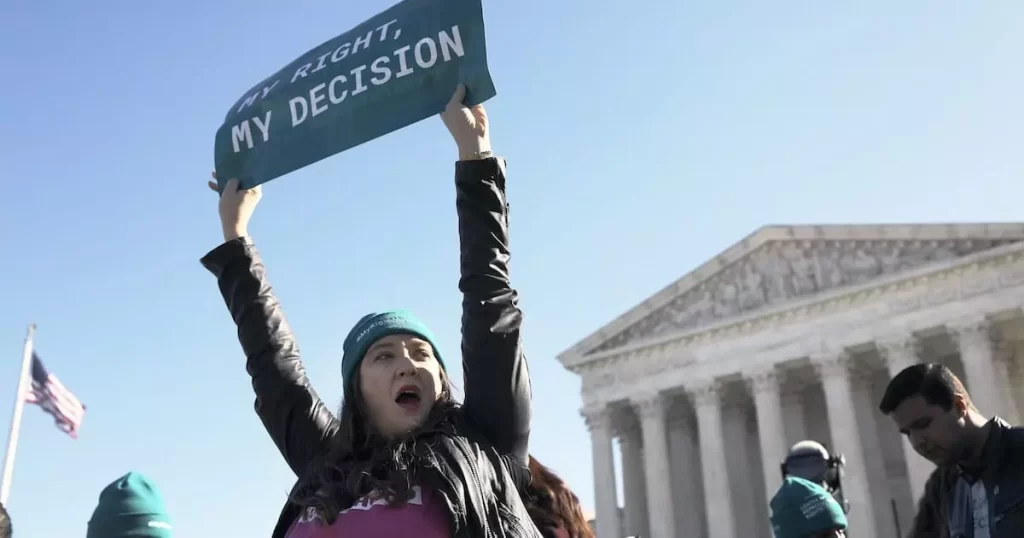The court order came as a victory for the Republicans and also the religious conservatives who sought a ban on a woman’s right to abortion.

Washington: The Supreme Court of the United States of America on Friday overturned the landmark 1973 Roe v. Wade ruling that gave women the Constitutional right to abortion. The court order came as a victory for the Republicans and also the religious conservatives who sought a ban on a woman’s right to abortion.
The court upheld a Republican-backed Mississippi law that bans abortion after 15 weeks. The judged held that the Roe v. Wade decision that allowed abortions performed before a foetus would be viable outside the womb – between 24 and 28 weeks of pregnancy – was wrongly decided because the US Constitution makes no specific mention of abortion rights, said Reuters.
Reacting to the development, President Joe Biden said, “Today is a very solemn moment for the United States. The Supreme Court expressly took away a Constitutional right from the American people that it had already recognized. They simply took it away. That’s never been done to a right that is so important to so many Americans.”
According to AFP, as many as thirteen states, mostly in the conservative and more religious south of the country, have in recent years adopted the so-called “trigger” laws to come into force virtually automatically after the decision was handed down. They differ in how they ban abortions. While Idaho provides exceptions for rape or incest, Kentucky only does so if a woman’s life is in danger.
Also Read: US Senate passes significant gun control Bill in 30 years
Laws in Louisiana could see health professionals jailed for up to ten years for carrying out in abortions. In Missouri, it’s 15 years, said AFP. In some states, such as South Dakota, the bans were due to go into effect the day of the Supreme Court’s ruling. In others, such as Arkansas or Mississippi, the attorney general will first have to confirm that the court has changed the legal framework, said AFP.
Watch Biden’s reaction here:
Texas and Tennessee have set a period of 30 days between the release of the judgment and a new ban coming into force.
(With Agency Inputs)
